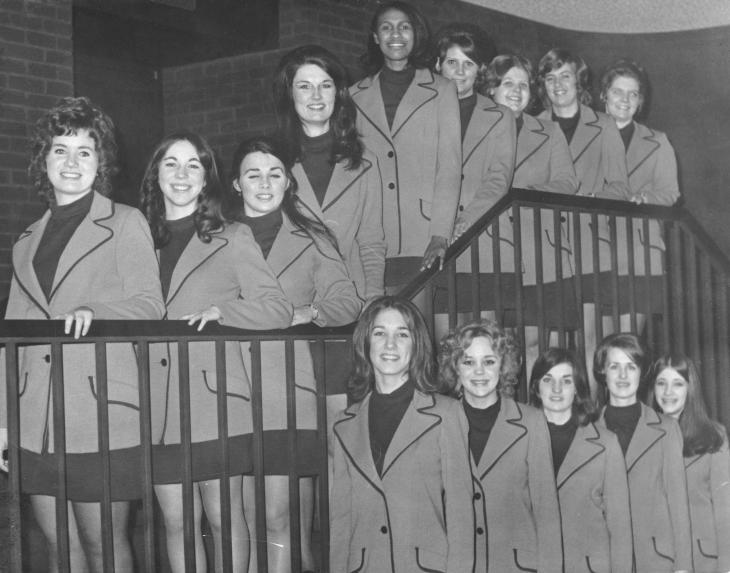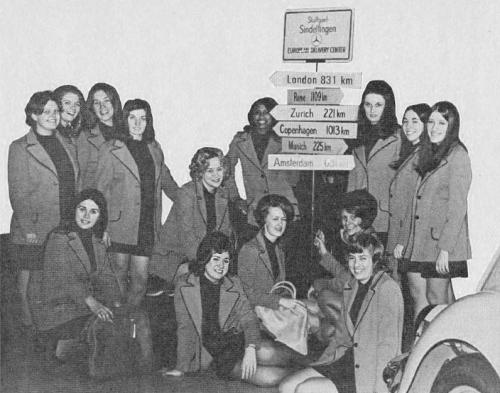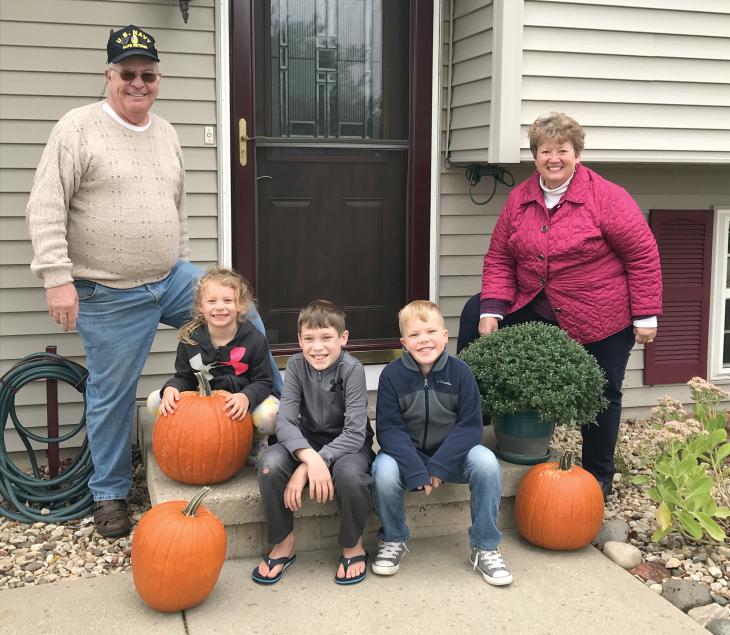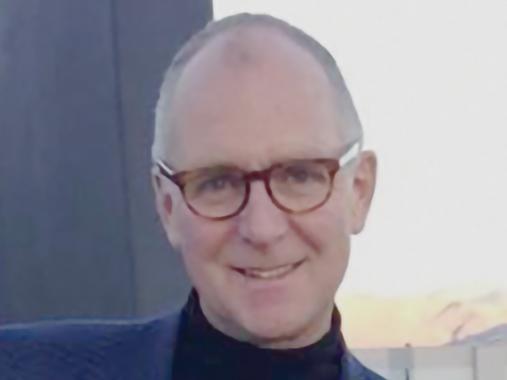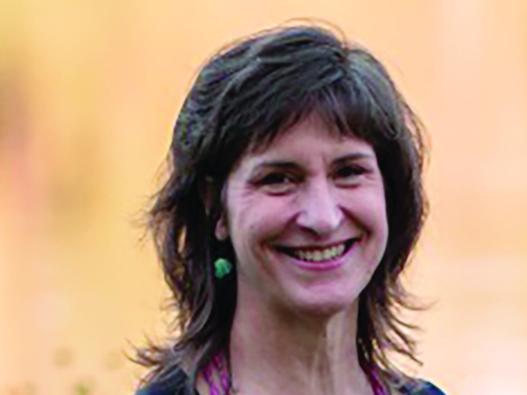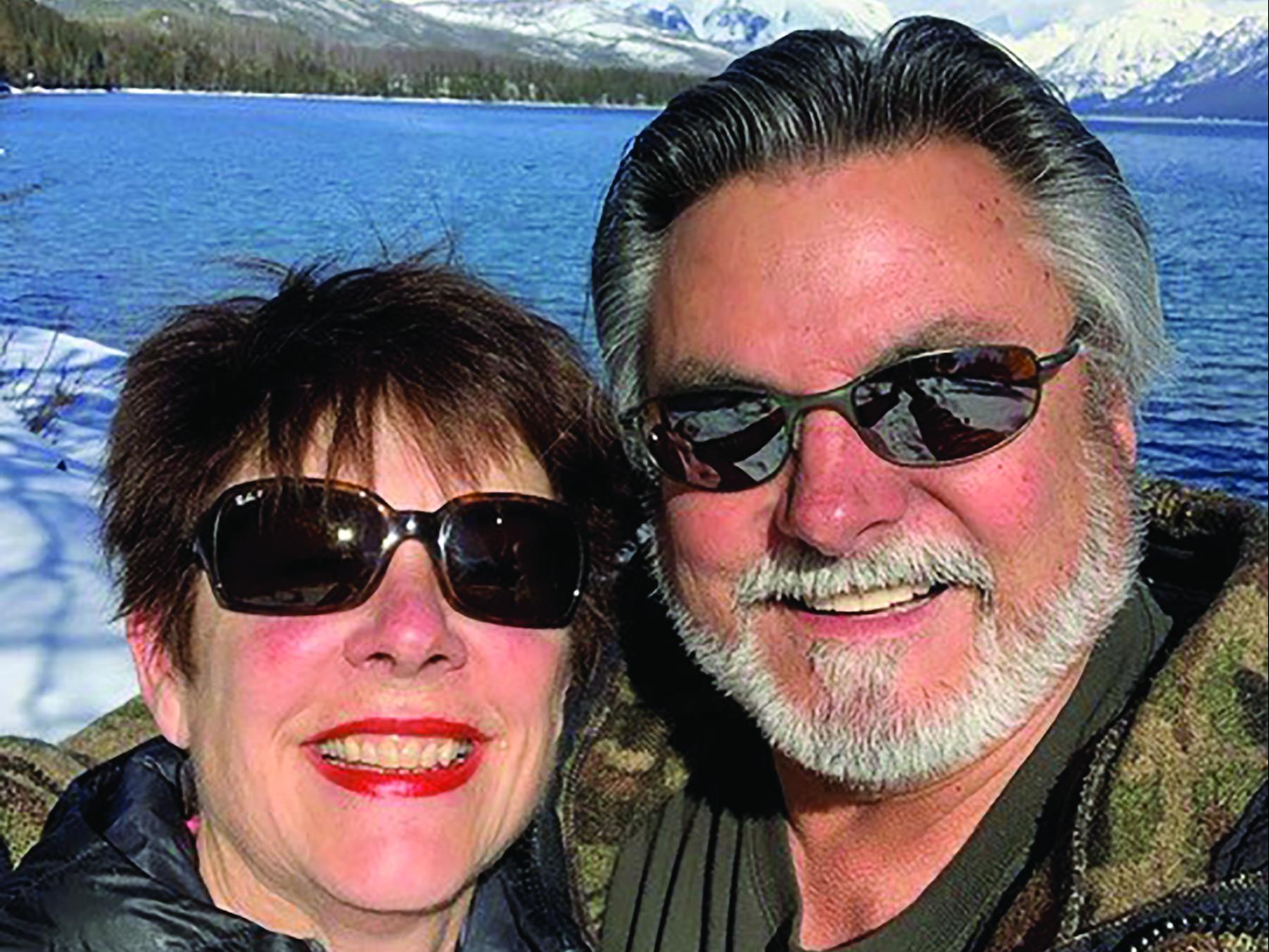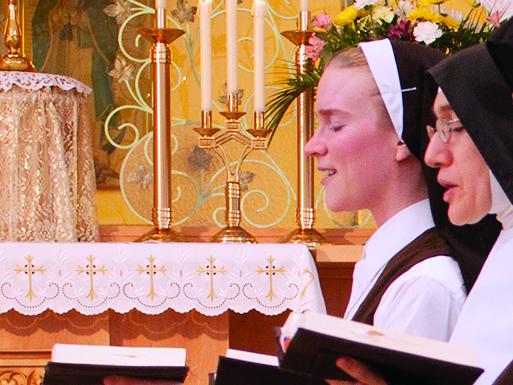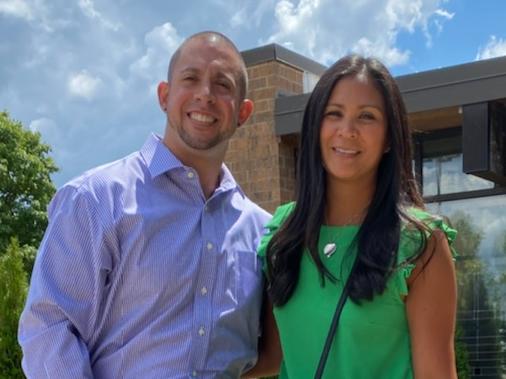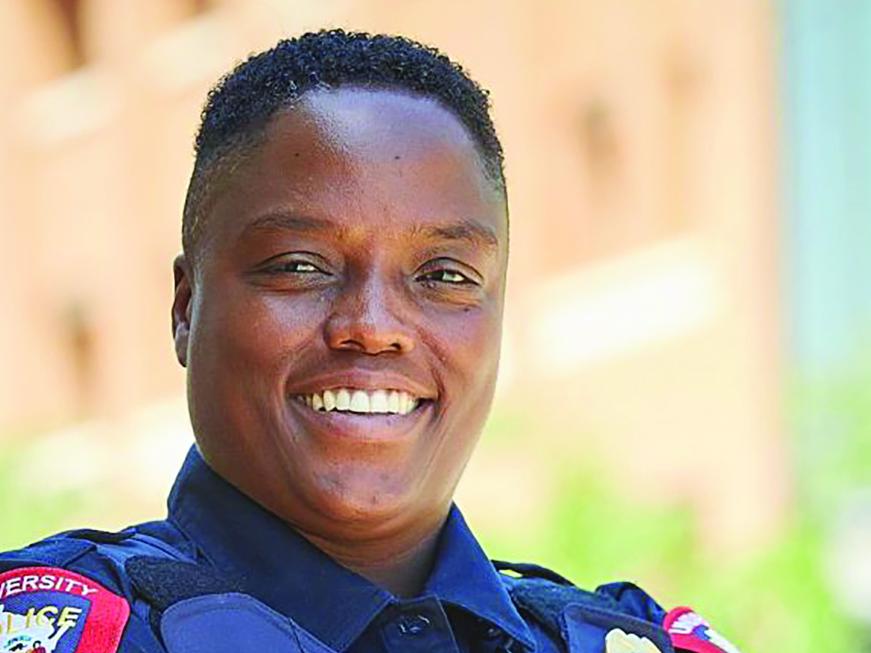Next May marks 50 years since Kris (Kampa) Hesch ’72 graduated from Viterbo with a degree in elementary education (biology was her area of concentration). For her, though, there was no cap, no gown, no pomp and circumstance.
“I did not walk across the stage to receive my diploma because I was on a USO tour with Viterbo’s Marianettes,” Hesch said.
During this once-in-a-lifetime European USO adventure, Marianettes members spent 52 days traveling by bus from one U.S. military base to another, usually performing two shows a day, mostly in USO club rooms.
“Because the Cold War was still brewing, we did not receive our ‘orders’ (schedule) until we arrived at Rhein-Main Air Force Base in Frankfurt,” Hesch recalled, adding that they were chaperoned by Annarose Glum, FSPA ’51, whose nickname on the trip was “Sarge.”
The Marianettes and the music department were among the top reasons Hesch came to Viterbo.
Much of her college involvement was centered in the music department, as she sang in the chorale, had major parts in two opera performances, played flute occasionally in the orchestra, and performed with the Marianettes for four years. People assumed she was a music major, but for her, music was—and still is—her hobby.
After graduating from Viterbo, Hesch jumped into a long and rewarding career as a teacher, although her first job wasn’t too rewarding in the financial sense.
She actually signed her first teaching contract before she graduated, agreeing to teach science to grades 5–8 and music for grades 7–8 at St. Joseph School in Stratford for $6,200 per year with no benefits.
“It was a challenging year as all first-year teachers know, but I introduced the students to working in groups on science experiments and working independently on ‘contracts,’ which was a buzz word at the time,” said Hesch, who started the tradition of Christmas and spring choral concerts at the school.
Though the St. Joseph Sisters encouraged her to stay, the opportunity to teach at Mosinee Public Schools, which offered a better salary and benefits, was too good to pass up. She taught first grade there for three years, until getting married in 1976 and moving to California.
Not licensed to teach in California, Hesch went to work at the Social Security Administration, an eye-opening experience. One of the biggest things she realized is educators make do with so few resources compared with other fields, creatively finding ways to get by.
In 1978, she and her husband, Paul, and their 1-year-old son, moved to Stevens Point, and she returned to teaching at St. Adalbert’s School in Rosholt, a combined fifth- and sixth-grade class with 52 students.
Yes, you read that right. “I had fifth graders on one side of the room and sixth graders on the other side of the room,” Hesch said. “They were accustomed to that learning environment, as the small, but newish school had only four large classrooms and a multipurpose room. We walked across the road to the church to eat lunch in the basement hall.”
In 1980, while taking a graduate class, she met a teacher from the Stevens Point schools who encouraged her to apply for an opening in that district. Hesch landed the job and she spent the rest of her teaching career there, retiring in 2008.
“During those 28 years, Paul and I had two more children, I got my master’s degree in education, attended many in-services, wrote and rewrote curricula, previewed new textbooks, and welcomed practicums and student teachers,” Hesch said.
“After 35 years,” Hesch continued, “one would think that teaching would have become easier, with all that practice. Far from it. It became increasingly more challenging. But I wouldn’t have wanted to do, or be, anything else. Teaching children was my passion. And I feel blessed to have done so.”
Hesch now has seven grandchildren and has the opportunity to help in each of their classrooms. “Their teachers are amazing, innovative, energetic, attuned to their students’ needs, and current with technology,” she said.
